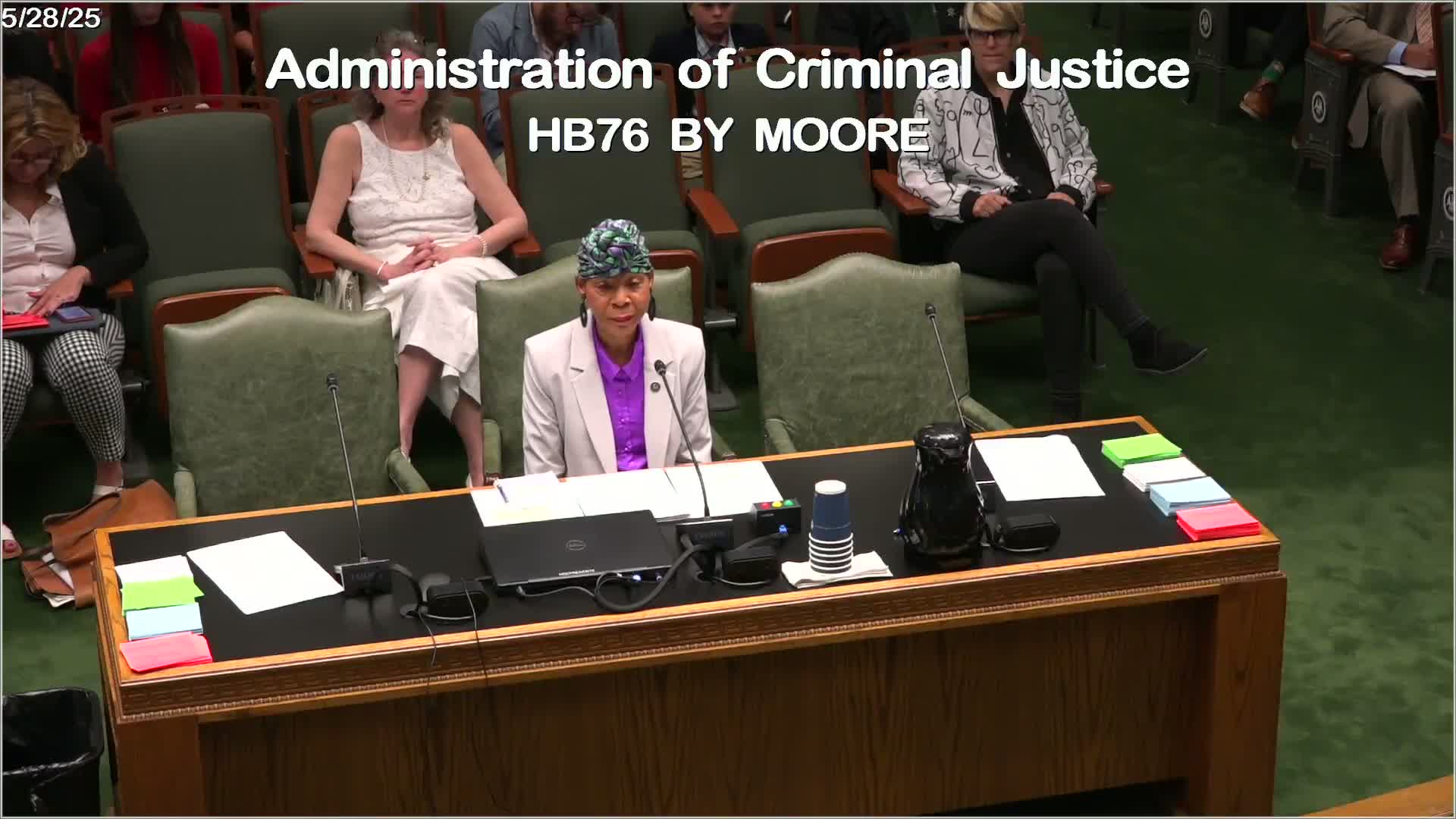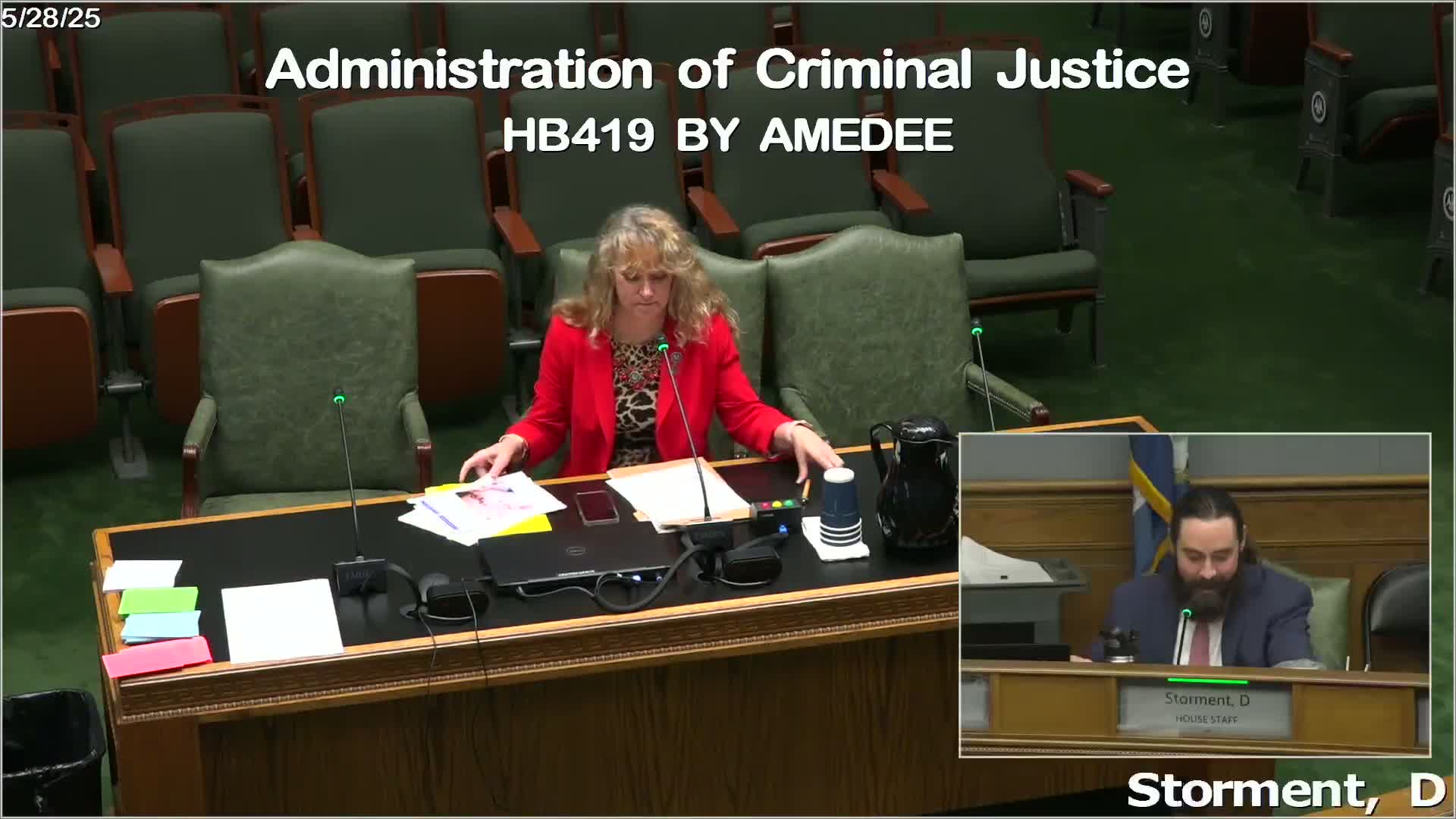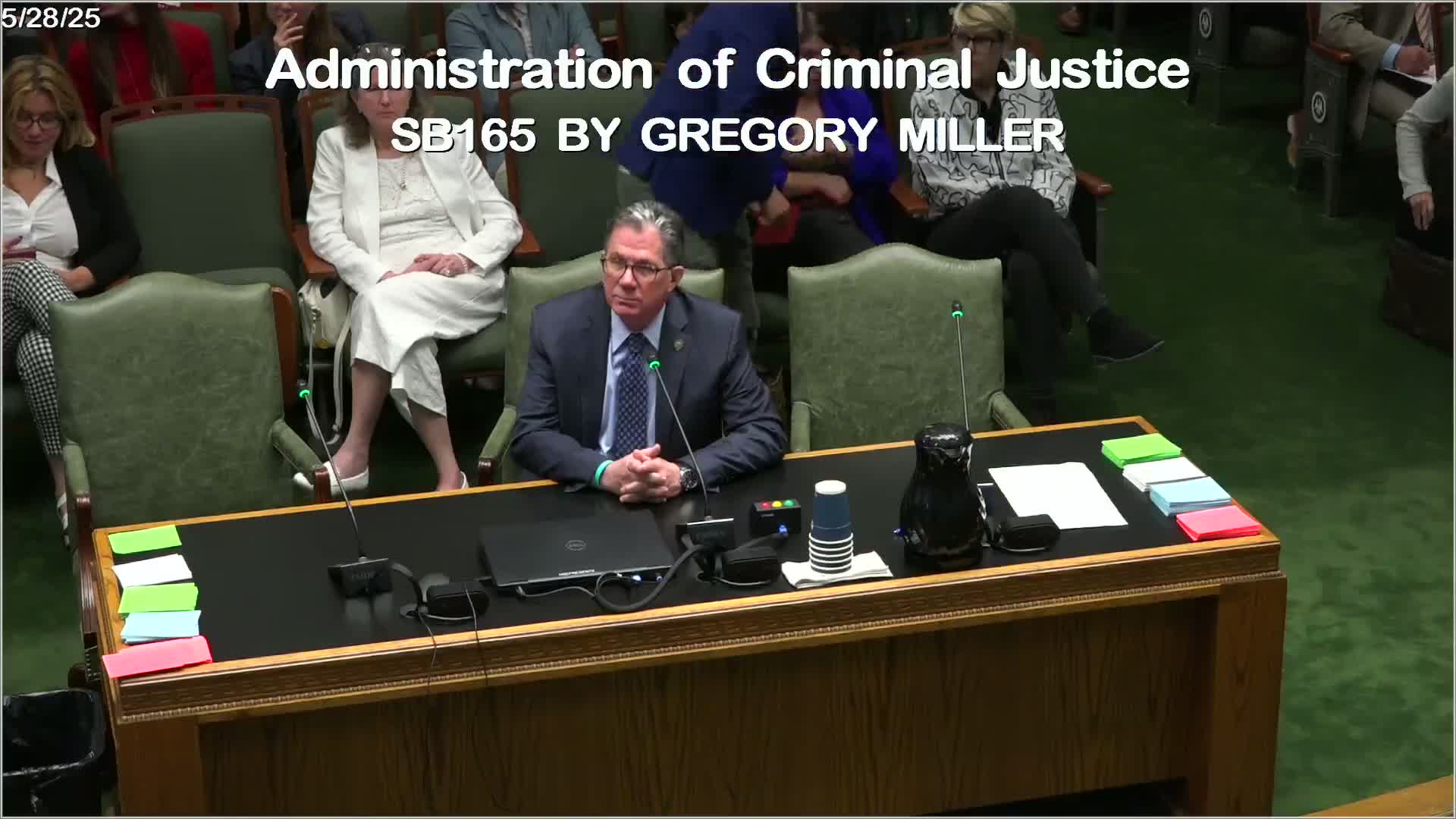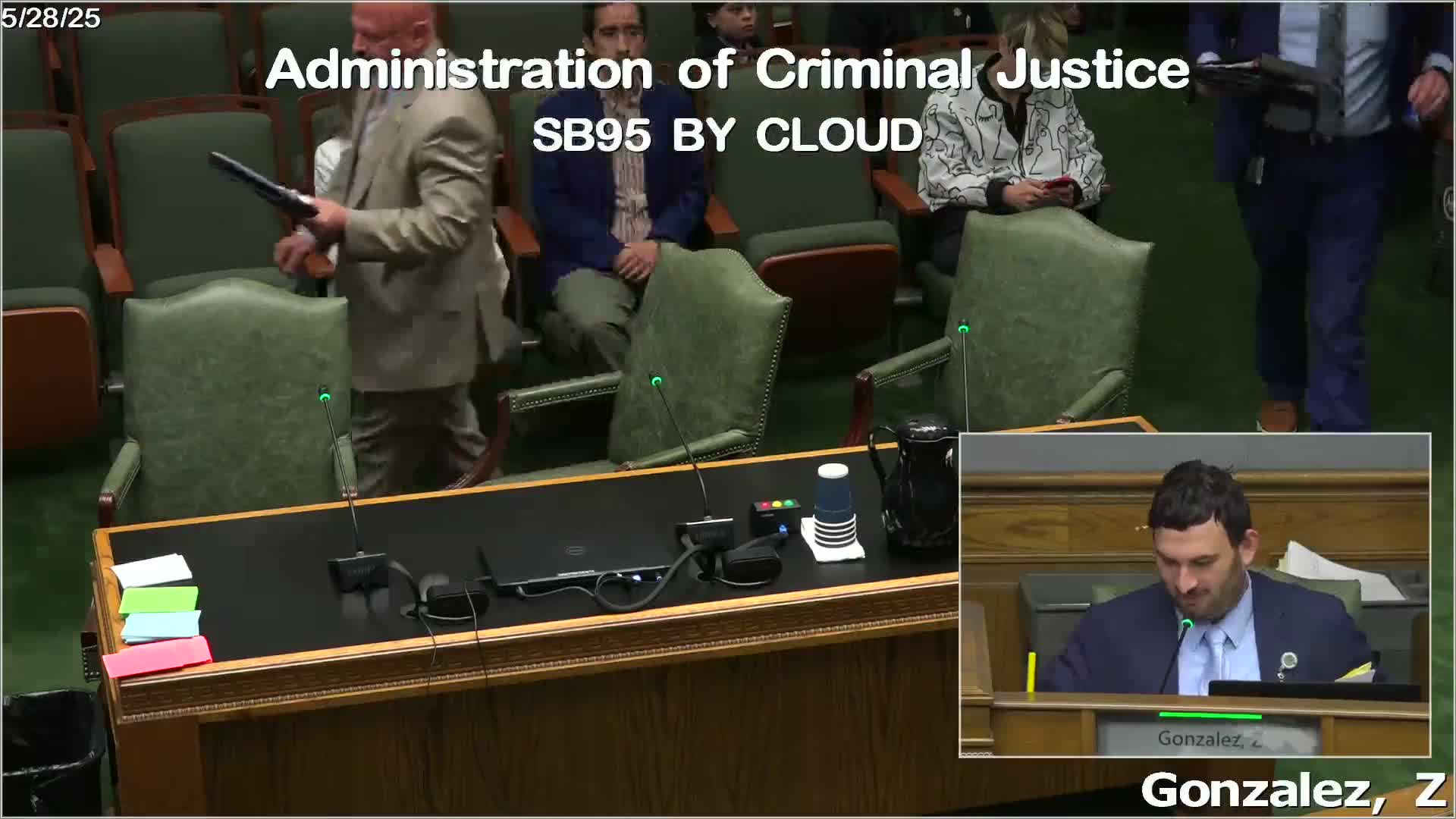Article not found
This article is no longer available. But don't worry—we've gathered other articles that discuss the same topic.

Louisiana committee adopts bill criminalizing intentional infection of incurable STIs; advocates and public health experts urge caution

House committee rejects bill criminalizing intentional release of self‑spreading pathogens after scientific and civil‑liberties concerns

River Parishes juvenile justice district bill amended to add Lafourche and protections for local funding

